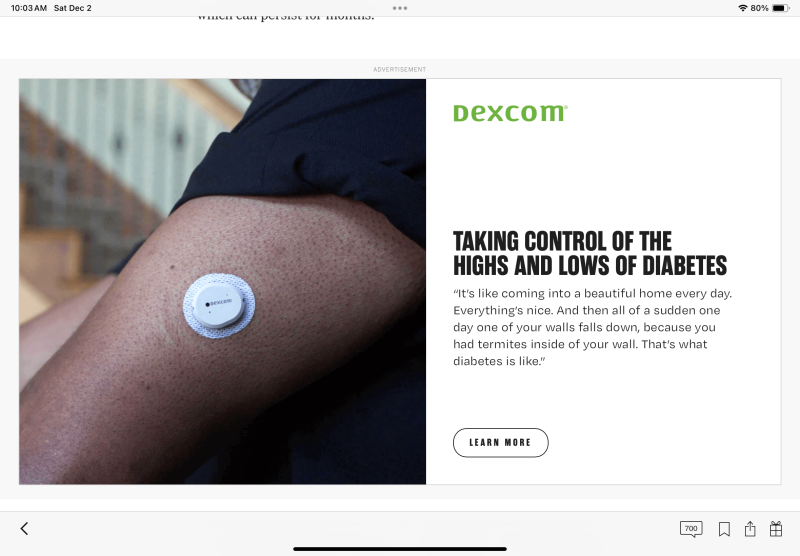Tech doesn’t allow you to control blood sugar or diabetes

I was a very happy user of the Dexcom G5 and G6 CGM. If you read anything here you likely know I’m not a fan of the G7 – too many lost signals and that atrocious overpatch. So several weeks ago I switched to Abbott’s Libre 3 and frankly it’s working pretty great so far. Yes, there’s an occasional lost signal, but far, far, far fewer, it’s just as accurate for me as Dexcom, so tiny that I forget I’m wearing it, and it uses the smallest amount of adhesive that’s also the strongest. It stays on throughout the entire 14 day wear.
However, while I think the CGM is the best thing to have happened to diabetes after the discovery of insulin, it does not, in any way, shape or form, control it. Or allow you to control it as the ad above indicates. What it does do is expand your ability to influence and navigate, aka manage, your blood sugar: nothing “controls” blood sugar or diabetes because it cannot be controlled.
Thinking we can control blood sugar and our diabetes takes the view that the human body – you – are a machine. As in you can do this and that will happen, precisely. As if I could get a blood sugar of 168 mg/dl down to 100 mg/dl exactly and in a certain time period. As if I could prevent toppling over 140 mg/dl by eating low carb and exercising, which I do, yet I’ve seen my fair share of highs and will continue to.
As a human, with multiple metabolic functions interacting and influencing blood sugar, and as I, and you, daily interact with our often unpredictable world, control is just not possible. So why do we keep telling people to take control as Dexcom assures us you can do with their CGM? I’ve recently written about this in further detail and will post the article here when published.
Meanwhile I’m glad to know “control” has been singled out for phasing out in the #languagematters movement. It’s time we get earnest about it and not continue to set people up for failure giving them the impossible goal of control.








